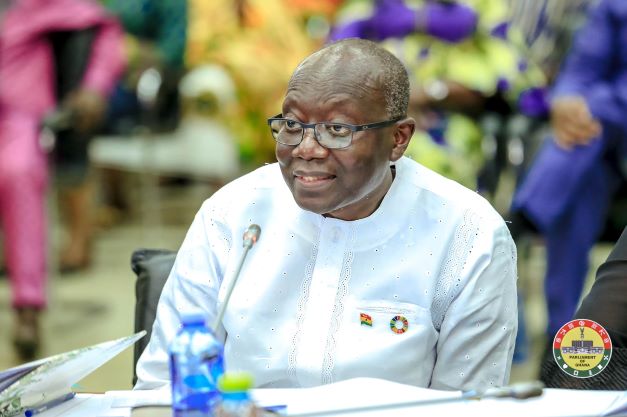The deadline for the Domestic Debt Exchange (DDEP) programme has been extended for the fourth time, to February 7, 2023, after revising the DDEP with corporate stakeholders.
The Ministry of Finance, announced the new date, explaining that that government has made significant progress with all stakeholders.
As such, there will be a “revised and final” Exchange Memorandum released by Thursday, February 2, 2023, which among others, will offer individual bondholders the opportunity to be part of the DDED despite the initial exemption.
“All bondholders are hereby encouraged to commence all administrative processes towards their participation in the Exchange, in line with the agreements reached,” the statement said..
The Ministry stated that the new Exchange Memorandum contained an affirmation that all individual bondholders were free not to participate in the DDEP.
Despite this, the statement explained that upon a successful DDEP programme, there would be very few of the ‘old bonds’ in circulation, and likely limit its tradeability.
In this direction, all individual bondholders below 59 years, are being offered instruments with a maximum maturity of five years, instead of 15 years, and a 10% coupon rate.
It added that all retirees including those retiring in 2023 will be offered instruments with a maximum maturity of five years, instead of 15 years, and a 15% coupon rate.
The Ministry noted that it was finalising discussions with Organised Labour and Pension Fund Trustees, on a separate arrangement under the Memorandum of Understanding signed with Organised Labour on December 22, 2022, and in line with the government’s debt management programme.
“With this, Government encourages all stakeholders to participate in the DDEP, an essential step towards meeting our debt sustainability targets and restoring macroeconomic stability and economic growth,” the statement noted.
Government appreciated the cordial engagements with the various stakeholders since the beginning of the DDE programme that had led to such remarkable progress possible.
The Domestic Debt Exchange Programme targets 80% threshold of GH₵137 billion.
The DDEP is gathering positive momentum as Ghana Securities Industry Association (GSIA), Ghana Association of Banks (GAB) and Ghana Securities Industry Association (GSIA) reached new terms of an agreement on the programme.
All of the institutional bondholders will be paid a 5% coupon on its 2023 bonds, which the original debt exchange plan had said would not pay interest.
All other restructured bonds will pay 9% coupons, rather than the variable rates originally outlined.
Sole discretion to vary the terms to be amended
Under the agreement, the government is to remove or amend all clauses in the Exchange Memorandum that empowers the government to, at its sole discretion, vary the terms of the Exchange.
As at October 2022, a breakdown of holdings of bonds are Bank of Ghana – 7%, banks-41%, pensions-19%, securities-5%, insruance-3%, firms and institutions-8%, foreigners-12%, individuals-6%.
External factors that negatively affected the economy
COVID-19, Russia-Ukraine war, soaring energy and food prices, higher interest rates, a strong dollar and a global slowdown negatively affected the economy.
Ghana seeking $3 billion loan
Ghana and the International Monetary Fund (IMF) have reached staff-level agreement on economic policies and reforms to be supported by a new three-year arrangement under the Extended Credit Facility (ECF) of about $3 billion.
But, the IMF has made it clear that the Board approval of the deal is contingent on a successful debt exchange programme.
Total public debt was GH₵578.7 billion in November 2022 which is unsustainable.
Total external debt stood at about GH₵383 billion as at November 2022. Domestic debt component constitutes GH₵195 billion.
The estimated interest Ghana has to pay on its debt with restricting hovers around GH₵52.6 billion.
Government is on a series of stakeholder engagements, to reach consensus with affected groups, on the terms of their participation in the Domestic Debt Exchange Programme.
- Monday, May 5, 2025 Newspaper Headlines - 5 May 2025
- MTN to cede 30% of MoMo to Ghanaians - 4 May 2025
- Hearts, Kotoko share the spoils in cagey super clash - 4 May 2025




